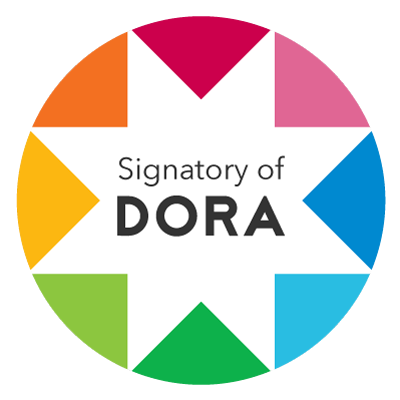Implementation and relevance of the Educational Computing Teacher Guides after the closing of the PRONIE-MEP-FOD agreement in Costa Rica
DOI:
https://doi.org/10.15517/m3eqwm72Keywords:
educational computing, educational software, educational tecnology, educational managementAbstract
This article presents the results of a study conducted by the Kipus-Costa Rica Network of the Educational Research Institute (INIE) of the University of Costa Rica (UCR). The objective of the research was to analyze the implementation and relevance of the Educational Informatics Teacher Guides of the National Technological Training Program (PNFT) of the Ministry of Public Education (MEP) of Costa Rica. These guidelines were applied in the second half of 2023, following the cancellation of the agreement with the Omar Dengo Foundation (FOD) and the closure of the National Educational Informatics Program (PRONIE). The research is exploratory in nature, as it addresses a topic that has not been investigated in the Costa Rican education system to date. To this end, an online questionnaire with closed and open questions was administered to 374 Educational Informatics (IE) teachers in preschool, primary, and secondary education. Frequency and content analyses of the questionnaire, as well as reports from state institutions and theories related to the topic, were conducted. The study finds that the IE proposal was implemented without training all teaching staff, as less than 50% of teachers received it; of these, 80% rated it as deficient. Regarding the development of skills and competencies in students based on the Guide, more than 60% of teaching staff report that these are not being achieved. The study concludes that the Guides are insufficient to promote the development of technological skills in students. Furthermore, a reengineering of the administrative and academic management of IE in Costa Rica is urgently needed to improve technological training in the National Education System.
Downloads
References
Chaves Salas, Lupita. (2008). Educadoras y educadores inolvidables. Instituto de Investigación en Educación, Universidad de Costa Rica.
Chaves Salas, Lupita., y Valverde Hernández, Melissa. (2021). Trabajo docente en tiempos de pandemia: el caso de Costa Rica. En D.A. Oliveira, E.P. Junior y A.M. Clementino (Orgs.), Trabajo Docente en Tiempos de pandemia: una mirada regional latinoamericana (pp.167-198). Red Estrado. https://ei-ie-al.org/sites/default/files/docs/ebook-2-trabajo-docente-en-tiempos-de-pandemia-1.pdf
Contraloría General de la República [CGR]. (2022). Informe de auditoría de carácter especial sobre la gestión de recursos tecnológicos destinados a los procesos de enseñanza y aprendizajes en el Ministerio de Educación Pública. CGR. https://cgrfiles.cgr.go.cr/publico/docs_cgr/2022/SIGYD_D/SIGYD_D_2022022208.pdf
Cossio Acosta, Pilar. (2021). Pensamiento computacional: habilidades asociadas y recursos didácticos. Una revisión sistemática. Revista Innovaciones Educativas, 23(1). http://dx.doi.org/10.22458/ie.v23iespecial.3693
Facultad Latinoamericano de Ciencias Sociales [FLACSO]. (2023). Comunicado sobre la evaluación del PRONIE-Flacso. https://www.flacso.org/index.php/en/node/452
Fallas Monge, Ida., y Zúñiga Céspedes, Magaly. (2010). Las Tecnologías Digitales de la Información y la Comunicación en la Educación Costarricense. Consejo Nacional de Rectores. Programa Estado de la Educación. https://repositorio.conare.ac.cr/items/111af0d1-225a-49e9-95c8-e9acad7e151d
Fundación Omar Dengo (FOD). (2023). PRONIE MEP-FOD. https://fod.ac.cr/pronie/
Gurdián Fernández, Alicia. (2001). Arqueología de un juego: la célula. Microcosmos de vida. Revista Actualidades Investigativas en Educación, 2(1), 1-20. https://doi.org/10.15517/aie.v1i2.8461
Ibarra Vargas, Esteban., y Castro, Hazel. (2024). Competencias digitales docentes: Creación y uso del video educativo en la práctica profesional en Educación Primaria. Encuentro Educativo. Revista De investigación Del Instituto De Ciencias De La Educación, 5(1), 13–46. https://revistas.uncu.edu.ar/ojs/index.php/encuentroE/article/view/6633
Ministerio de Educación Pública [MEP]. (2016). Política Curricular: Educar para una nueva ciudadanía. Ministerio de Educación Pública.
Ministerio de Educación Pública [MEP]. (2017). Política Educativa: La persona centro del proceso educativo y sujeto transformador de la sociedad. Ministerio de Educación Pública. https://www.mep.go.cr/sites/default/files/2022-06/politicaeducativa.pdf
Ministerio de Educación Pública [MEP]. (2023a). Estudiantes se beneficiarán del nuevo de tecnologías digitales del MEP. https://mep.go.cr/noticias/estudiantes-se-beneficiaran-nuevo-programa-tecnologias-digitales-mep
Ministerio de Educación [MEP]. (2023b). Circular: Guías para docentes de Informática Educativa del Programa Nacional de Formación Tecnológica. MEP.
Ministerio de Educación Pública [MEP]. (2023c). Guías de Trabajo para Docentes de Informática Educativa Programa Nacional de Formación Tecnológica para Educación Preescolar, I -II y III ciclo 2023. MEP.
Ministerio de Educación Pública [MEP]. (2024). Programa Nacional de Formación Tecnológica es una realidad en las aulas costarricenses. MEP. https://www.mep.go.cr/noticias/programa-nacional-formacion-tecnologica-realidad-aulas-costarricenses
Monge Nájera, Julián., y Méndez Estrada, Víctor Hugo. (2006). El papel de la computadora en la escuela: contraste entre teoría y práctica en docentes costarricenses de primaria y secundaria. Revista de Educación, 30(2), 47-62. https://www.redalyc.org/articulo.oa?id=44030204
Pangrazio, Luci., Stornaiuolo, Amy., Nichols, Philip., García, Antero., Philip, Thomas. (2022) La dataficación se une a la plataformización: materialización de procesos de datos en la enseñanza y el aprendizaje. Harvard Educational Review, 92(2), 257–283. https://meridian.allenpress.com/her/article-abstract/92/2/257/483741/Datafication-Meets-Platformization-Materializing
Programa Sociedad de la Información y el Conocimiento [PROSIC]. (2019). Hacia la sociedad de la Información y el conocimiento en Costa Rica. Informe 2019. Universidad de Costa Rica. https://prosic.ucr.ac.cr/sites/default/files/2025-02/Informe%20Prosic%202019.pdf
Ruiz, Paula. (2024). Computadoras para estudiantes permanecen en bodegas; MEP esperará conciliación para recibir equipos. https://observador.cr/computadoras-para-estudiantes-permanecen-en-bodegas-mep-esperara-finalizar-conciliacion-para-recibir-equipos/
Timana Tobar, Danny. (2020). Informática Educativa como medio de enseñanza, Revista Informática, Educación y Pedagogía, 6(9), 86-90. https://revistas.udenar.edu.co/index.php/runin/article/view/5856
Vargas Masís, Otto. (2023). Estudiantes se beneficiarán con nuevo programa de tecnologías digitales del MEP. MEP. https://mep.go.cr/noticias/estudiantes-se-beneficiaran-nuevo-programa-tecnologias-digitales-mep
Williamson, Bem., y Hogan, Anna. (2020). La comercialización y la privatización en y de la educación en el contexto de la COVID-19. Internacional de la Educación. https://ei-ie-al.org/sites/default/files/docs/20200708_102224_la_comercializacion_y_la_privatizacion_en_y_de_la_educacion_en_el_contexto_de_la_covid-19.pdf
Downloads
Published
Issue
Section
License
Copyright (c) 2025 Ana Lupita Chaves Salas, Helvetia Cárdenas Leitón, Julieta Castro Bonilla (Autor/a)

This work is licensed under a Creative Commons Attribution-NonCommercial-ShareAlike 4.0 International License.
All published articles and essays are protected by Creative Commons (CC) licenses, under the Attribution-NonCommercial-ShareAlike - CC BY-NC-SA 4.0 standard, which constitute a complement to traditional copyright, under the following terms : first, the authorship of the referred document must always be acknowledged; second, no article or essay published in the ACTUALIDADES INVESTIGATIVES EN EDUCACIÓN Magazine can have commercial purposes of any nature; and third, adaptations of the manuscript must be shared under the same terms.
The journal allows the author to hold their copyright without restriction, but the author must inform that the article or essay were published first through this journal to avoid coincidences with other journals in the future.







